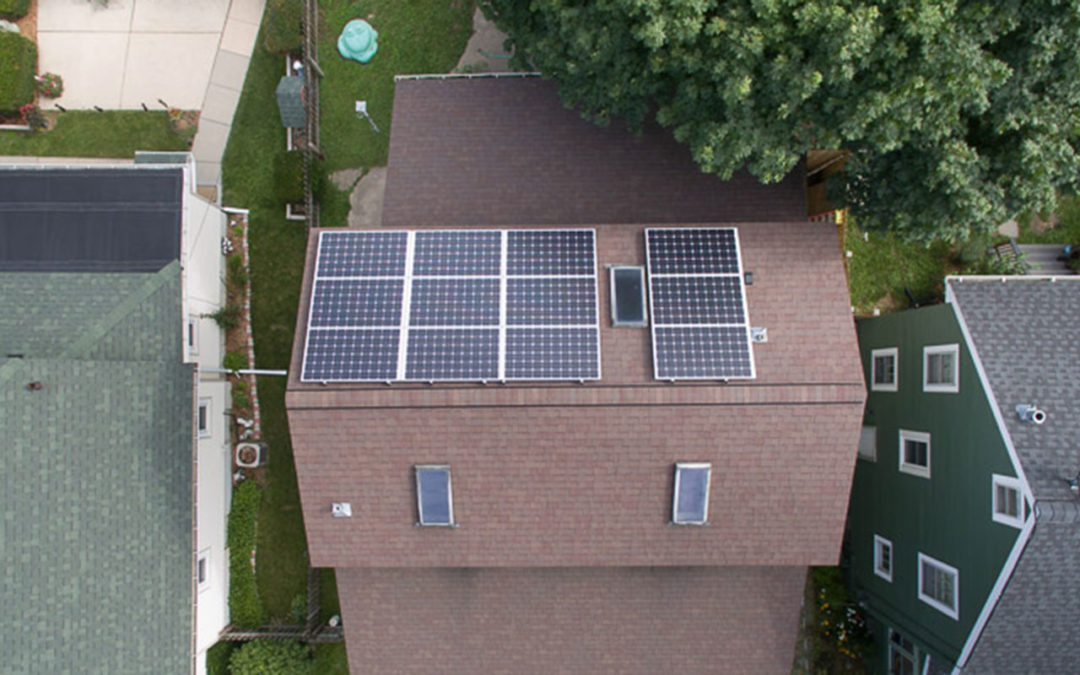
by Andrew Kell | Mar 18, 2022 | Advocacy, Policy, PSC Priorities, Public Service Commission, Solar
In June of 2020, the Public Service Commission of Wisconsin (PSC) opened an investigation into parallel generation (docket 5-EI-157). Parallel generation refers to distributed generation (DG) that is sited at a customer’s premises and can 1) produce energy for the customer’s energy use, and 2) produce and sell to the utility energy that exceeds the customer’s use. The most common type of DG is a solar photovoltaic (PV) rooftop system.
According to the PSC Notice of Investigation, this ongoing parallel generation investigation aims to gather information on costs, markets, emerging technologies, and barriers to DG in the state. A January 2021 RENEW blog described the initial activities in the docket.
After gathering information, the PSC made an initial decision in the docket to further explore:
- avoided costs and buyback rates for DG;
- net metering;
- contracts; and
- consistent terminology and terms of service across the state.
To better understand the value of DG, the PSC directed the five largest investor-owned utilities in Wisconsin to provide modeling and calculations of ‘avoided costs’ and revise the rates at which the utilities purchase energy from DG (also called ‘buyback rates’).
The utility’s buyback rate is a critical economic variable for DG. When homeowners and businesses entertain the idea of solar generation on their rooftops, they must first consider the costs and benefits of installation. The principal economic benefits of installing solar are reducing the energy you buy from the utility and getting paid for the excess energy you sell to the utility. Outside of the net energy billing services available for small installations, most utilities in Wisconsin pay very little for the energy they purchase from DG customers. Utility payments to DG customers don’t recognize the value of local, clean energy, which then oppresses the development of DG and hinders the advancement of carbon reduction goals.
It became apparent that upcoming PSC decisions would reset buyback rates and influence the business case for DG in Wisconsin, potentially for decades to come. As a result, RENEW put together a plan to participate in the utility cases and contracted with GridLab and Synapse Energy Economics to provide expert testimony on the issues.
When the utilities filed their buyback rate applications in early September last year, there were no major surprises to the clean energy community. Rather than model and calculate the long-term avoided costs of local, renewable DG, as the Commission requested, utilities either cited short-term marginal prices for some costs or simply stated that DG provides no value for other costs. RENEW needed to do more than simply critique the utility applications. The RENEW team developed a complete counterproposal for the Commission’s consideration, premised on criteria established by the Commission and just, reasonable buyback rates for DG customers.
Over several months, RENEW collaborated with its consultants and Keyes & Fox, a firm dedicated to clean energy law. Focusing on the Commission’s conceptual framework of avoided energy, generating capacity, and transmission costs, RENEW’s team gathered information, developed and ran market models, and calculated buyback rates. This ensured that RENEW’s proposal would meet the Commission’s requirements and recognize the actual value renewable DG provides to all utility customers.
These efforts resulted in a comprehensive framework for the Commission to consider and adopt for all utilities across Wisconsin. The RENEW team is now submitting testimony and evidence to support this comprehensive framework in all five utility cases.
RENEW now needs your support! The Commission will soon open the public comment period for these five cases and needs to hear from clean energy organizations, climate activists, businesses, and residents across Wisconsin. Below is a list of the five utility cases. RENEW will update the list with dates and direct links to make public comments when the public comment period becomes known. Since Commission decisions in these cases will set a precedent for all utilities in Wisconsin, we encourage you to comment on all 5 cases.
Click on applicable links below to submit comments for each utility.
Energy Policy Nerd Alert!
If you are interested in reading through the details of RENEW’s testimony filings, below are links to direct testimony filings for the case proceeding first (Xcel Energy, aka Northern States Power Company-Wisconsin). Testimony for other cases mentioned above will be available at a later date.
Direct Testimony of Andrew Kell
Direct Testimony of Michael Vickerman
Direct Testimony of Divita Bhandari (Synapse consultant)
Direct Testimony of Rachel Wilson (Synapse consultant)
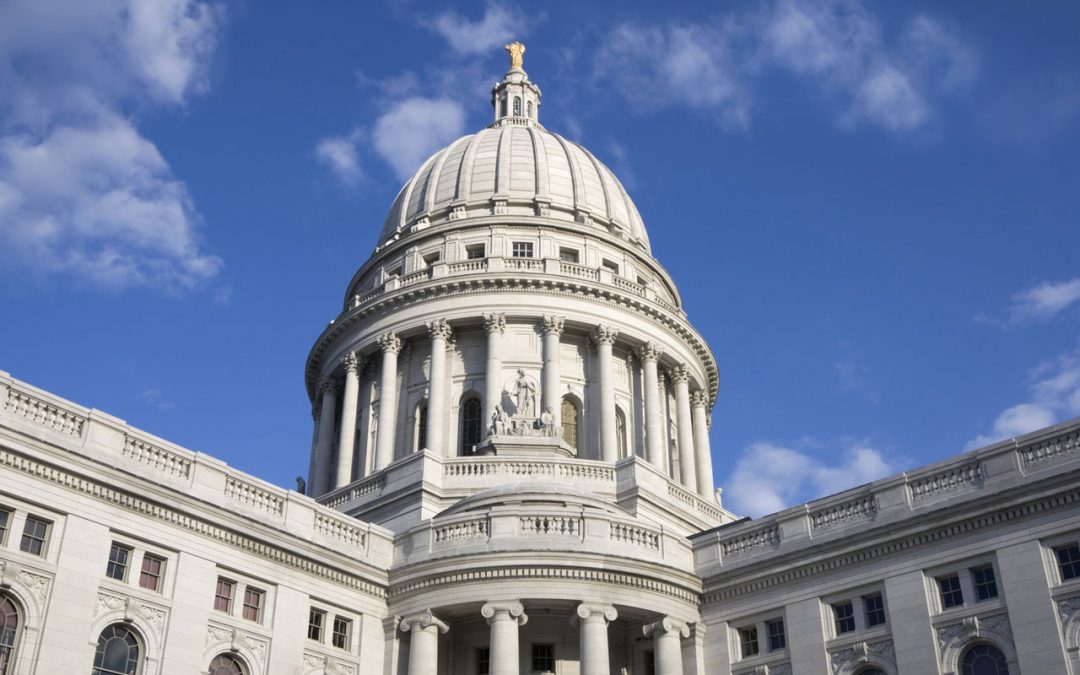
by Jim Boullion | Mar 18, 2022 | Advocacy, Community Solar, Electric Vehicles, Energy Storage, Legislative Watchlist, Local Government, Policy, Solar
The 2021-22 legislative session in Wisconsin is now over. It was a busy session for clean energy initiatives with legislation introduced to allow more community solar, clarify the rules for leasing solar equipment, and update the regulations for electric vehicle (EV) chargers. Most of these bills were bipartisan, with support on both sides of the aisle. See the bottom of this article for a summary of this year’s major clean energy legislation.
The session started when Governor Tony Evers introduced his 2021-23 Budget Bill in February 2021. It included 28 provisions (many of them drawn from the Governor’s Taskforce on Climate Change) that would have advanced Wisconsin’s clean energy and energy efficiency. Among those provisions were recommendations to expand Focus on Energy, invest in the clean energy workforce, and support Wisconsin’s electric vehicle infrastructure. Unfortunately, by the time the Governor signed the Budget in July, those provisions were removed from the Budget and did not pass.
On November 15, several Democratic legislators introduced a package of 22 bills called Forward on Climate. The package proposed increased funding for Focus on Energy, on-bill financing of energy efficiency improvements from utilities, and a Wisconsin Climate Corp to provide training and opportunities in clean energy industries for Wisconsin’s youth. The session ended without any of these bills being adopted. Still, it outlined what kinds of initiatives they support to create good, family-supporting jobs, reduce inequality, and fight climate change through Wisconsin-centered policies.
What passed and what progress was made?
The only major clean energy bill that passed this session was a bill to modernize the PACE financing program. However, many clean energy initiatives made in-roads with legislators from both sides of the aisle. The new technology developments and dropping prices for renewable energy over the last few years is an excellent story for reducing emissions, bolstering economic growth, diminishing energy prices, and creating jobs. Even if there are still hurdles to overcome, everyone is interested in learning more.
There is growing interest among a wide range of stakeholders in clean energy legislation. The best example is SB 490, the community solar bill, where many diverse interests have registered in support. While some groups have expressed concerns with the bill, most business and public interest groups who registered support this kind of change.
Even though we didn’t pass them this session, electric vehicle legislation is also getting attention, especially in light of the volatile gas prices this year. As the price of EV battery production falls, the initial price of EVs will get more competitive, making the cost of EV operations compared to petroleum-powered vehicles very attractive.
The EV transition is coming fast, and we need to be ready. We need to finalize the rules and regulations over EV charging, determine how to pay for the roads if the gas tax generates less income, and streamline the buying process for new EVs coming into the market. One of the big things happening in the coming year is the millions in federal Infrastructure Investment and Jobs Act money coming to Wisconsin for EV infrastructure. We need to work with all stakeholders to ensure that Wisconsin can utilize that money efficiently.
What happens next?
Over the summer and fall, RENEW Wisconsin will meet with candidates running for state and federal office. We will be educating them about new developments in clean energy and electric vehicles and discussing essential policy changes we need to make these advances available to everyone in Wisconsin.
You can also do your part by getting involved in your local elections, talking to your local candidates, and supporting the candidates who support clean energy with your votes, time, and financial contributions. This time of year, candidates are especially interested in what you have to say and will take the time to listen. Clean energy can have a big year in 2023, but only if we do the work this year to educate and help elect candidates who will support us!
If you would like information on any clean energy issues or the elections, please contact Jim Boullion, Director of Government Affairs, jim@renewwisconsin.org,
2021-22 Wisconsin Legislative Session
Clean Energy and Electric Vehicle Issue Summary
PACE Financing Modernization – (SB 692/Wisconsin Act 175 – Sen. Cowles and Rep. Thiesfeldt)
- Expands type of projects that may be financed: Adds energy reliability improvements, weather-related resiliency projects, electric vehicle charging infrastructure, and stormwater control measures.
- Financing: Defines the term of the repayment period, clarifies that financing may be repaid through a lien, and ensures that mortgage holders provide written consent before the issuance of funding.
- Performance Requirements: Removes the requirement for project savings to exceed project costs and would instead require a third-party assessment of the anticipated energy and water cost savings from the proposed project and confirmation of proper installation after work is completed.
- Excludes Residential PACE: Prohibits PACE financing for residential units of less than five units. PACE loans will remain only for commercial or industrial buildings.
Assembly: Passed on voice vote (2/23/2022) and sent to Governor for signature.
Senate: Passed 32-0 on 2/15/22.
RENEW Position: Support.
EV Charging Rules – (SB 573 – Sen. Cowles and Rep. VanderMeer) Clarify that selling electricity by the kilowatt-hour to electric vehicles (EVs) does not subject EV charging station owners to utility regulation. No city, village, town, county, school district, special purpose district, or state agency may own, operate, manage, lease or control a charging facility. Local governments can authorize a utility or private entity to operate a charger on their property. Requires that all energy come from the local utility, limiting Solar+Storage EV charger availability.
Senate: Passed on vote of 19-13 (2/15/2022). Did not concur with Assembly Amended bill 3/8/22
Assembly: Passed on voice vote, with amendment, (2/24/22). Failed to pass.
RENEW Position: Oppose due to restrictions on non-utility energy sources and restrictions on the State and local governments from owning or operating EV chargers.
Expanded Development of Community Solar – (SB 490 / AB 527 – Sen. Stroebel and Rep. Ramthun) Would authorize the development of non-utility-owned community solar projects, allowing more individuals and businesses to access clean energy, save money and create good-paying jobs. Require local investor-owned utilities (Cooperative and municipal utility territories would be exempt) to provide credits on utility bills of subscribers for the energy generated by the system. Directs the PSC to develop rules that will establish fair credit rates and compensation to utilities for the use of utility infrastructure and billing.
Assembly: Energy and Utilities. Failed to pass.
Senate: Utilities, Technology, and Telecommunications. Failed to pass.
RENEW Position: Support
3rd Party Financing/Leasing – (SB 702 / AB 731– Sen. Cowles and Rep. Cabral-Guevara) Clarify that 3rd party financing/leasing of renewable energy equipment is legal in Wisconsin.
Assembly: Energy and Utilities. Failed to pass.
Senate: Utilities, Technology, and Telecommunications. Failed to pass.
RENEW Position: Support
Energy Storage Sales Tax Exemption – (SB 672 /AB 710 – Sen. Cowles and Rep. Duchow) Clarify that battery storage devices installed as part of a renewable energy system should be included in the sales tax exemption for renewable energy system equipment.
Assembly: Committee on Ways and Means. Failed to pass.
Senate: Committee on Financial Institutions and Revenue. Failed to pass.
RENEW Position: Support
Use $10 million of VW Settlement Funds for EV Charging Station Grants – (SB 663/AB 695 – Sen. Cowles and Rep. VanderMeer) Grants from these funds will be used to install electric vehicle charging stations at key locations throughout Wisconsin. Requires the PSC and DOT to study how the growing number of EVs will impact the transportation fund and determine methods to ensure they contribute to that fund equitably. Grant recipients can only resell electricity obtained from the local electric utility. $5m for EV Corridors; $3m for businesses or multifamily; $2m to be determined by PSC.
Senate: Committee on Transportation and Local Government. Passed committee 5-0. Failed to pass.
Assembly: Committee on Energy and Utilities. Failed to pass.
RENEW Position: Support
Direct Purchase of Electric Vehicles – (SB 462 / AB 439 – Sen. Kooyenga and Rep. Neylon) Would enable electric vehicle manufacturers to deliver and service vehicles in Wisconsin using online sales or manufacturer-owned dealerships without going through a 3rd party dealership.
Senate: Senate Gov. Operations Committee. Passed Committee 4-1. Failed to pass.
Assembly: Committee on Transportation. Failed to pass.
RENEW Position: Support
Create a System to Measure Carbon Emissions for Animal Agriculture Operators. (SB1054 / AB 1072 – Sen. Cowles and Rep. Tauchen).
- DATCP shall establish voluntary and market-driven standards for quantifying the carbon emissions produced directly and indirectly from an animal agriculture operator’s activity.
- DATCP must facilitate trade in products and services related to transactions between animal agriculture operators and other parties for carbon emission offsets and may operate an electronic marketplace for selling and purchasing carbon emission offsets.
- PSC shall develop a statewide master plan for collecting, transporting, and commercializing renewable natural gas produced from animal wastes, biomass, and other organic sources.
- PSC will establish standardized power purchase agreements and standardized agreements for the provision of energy as a service between animal agriculture operators and electric utilities
Assembly: Committee on Energy and Utilities. Failed to pass.
Senate: Committee on Natural Resources and Energy. Failed to pass.
RENEW Position: Support
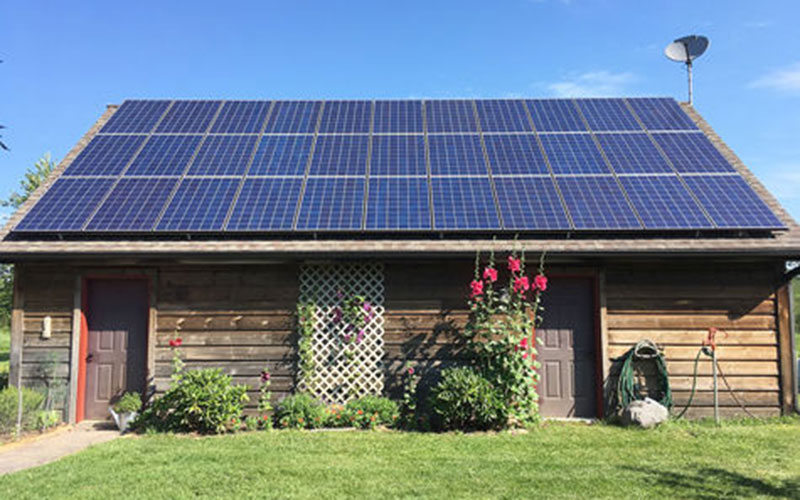
by RENEW Wisconsin | Mar 16, 2022 | Action Alert, Advocacy, Legislative Watchlist, Net Metering, PSC Priorities, Solar
Net metering is a billing policy that enables customers who generate electricity from solar energy to receive a bill credit for the excess energy they add to the grid. This arrangement allows residential and business customers to generate their own electricity, reduce carbon emissions, and provide substantial economic benefits to their communities.
In Wisconsin, net metering varies widely by utility. For example, some utilities use a monthly billing period for netting, while others use an annual period. Some utilities cap systems to 20 kilowatts (kW) for net metering purposes, while others have a 100 kW or 300 kW cap. Due to statewide inconsistencies across utilities, there are opportunities for policy improvements to provide clarity and better reflect the value of solar.
Solar customers and clean energy supporters have an opportunity to submit comments to the Public Service Commission in favor of protecting and improving net metering in Wisconsin. The Commission has asked for remarks on four key questions and shared a 60-page memo from the Regulatory Assistance Project describing net metering policy issues, changes to net metering in other states, and several other aspects for consideration. Comments must be received by 5:00 p.m. on Tuesday, March 22, 2022.
The PSC’s net metering questions (paraphrased):
- Do current net metering tariffs appropriately balance the ratemaking principles?
- Do current net metering tariffs align with the Commission’s mission and state energy policy goals?
- How could net metering tariffs better align with ratemaking principles and policy goals?
- What, if any, further action should the Commission take to review and reform net metering tariffs?
While RENEW is enthusiastic that the Commission is exploring ways to improve net metering, nuances in the memo could undercut rather than accelerate solar growth in Wisconsin. It is critical that any effort to rework net metering in Wisconsin protects the positive features of the current system and carefully evaluates the risks and benefits of any changes. As evidenced by the PSC’s 2021 PV potential study, Wisconsin can expand customer-owned solar, especially with the correct net metering policies. However, opening up the door to changes too quickly may put the current benefits of net metering at risk.
We encourage you to submit comments and share what’s working, what’s not, and why supporting a robust net metering policy is critical for Wisconsin’s clean energy future.
Thank you for your support!
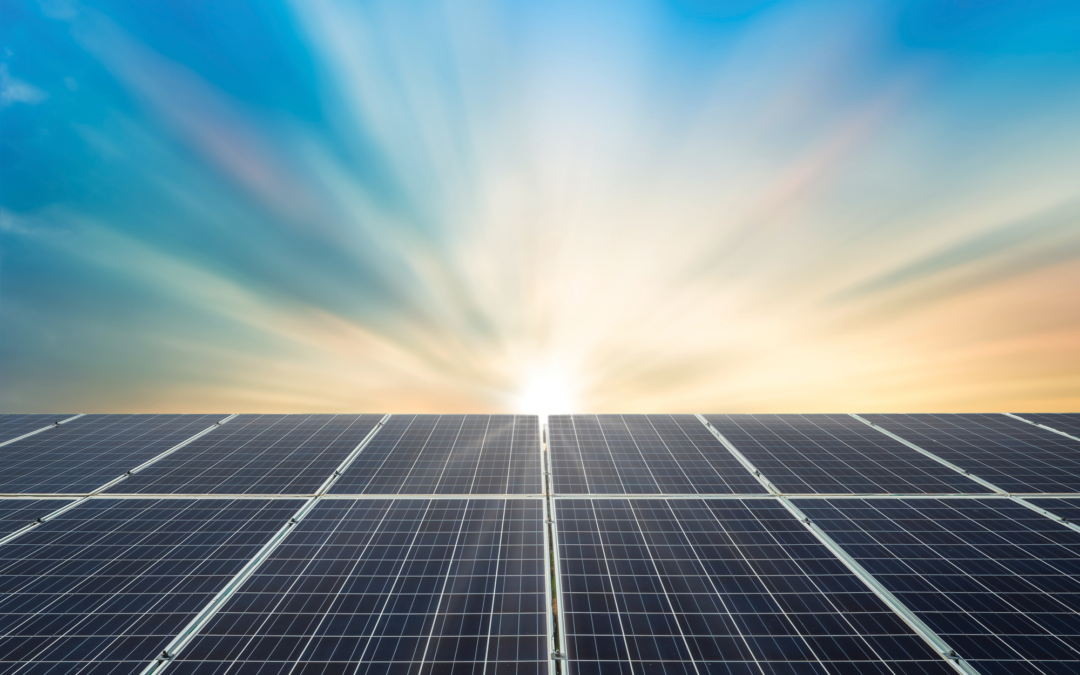
by Sam Dunaiski | Mar 14, 2022 | PSC Priorities, Public Service Commission, Solar
Wisconsin’s rooftop solar photovoltaic (PV) marketplace is still in its infancy. In 2020, rooftop solar generating capacity was approximately 104 megawatts (MW), representing about 1/3rd of one percent (or 0.333%) of all the electricity produced in our state.
However, Wisconsin’s rooftop solar market is growing, with over 10 MW of solar installed on residential homes last year, compared with approximately 5 megawatts in 2019. The combination of Wisconsin’s current rooftop solar capacity and adoption rate in the solar marketplace prompted Wisconsin’s Public Service Commission (PSC) to request a Rooftop Solar PV Potential study. The study provides both technical potential and simulated market adoption analyses.
Technical Potential Study
Nearly 37 gigawatts (GW) of technically feasible rooftop solar capacity would be possible in Wisconsin by 2026. By 2034, another 2 GW[1] of solar would be possible on Wisconsin rooftops, for a total of 39 GW, enough to provide around 70% of our total statewide electricity needs. Unfortunately, only 1.6% of this is projected to be adopted by 2034, given our current set of economic and regulatory factors.
The technical potential study considers all rooftop square footage in the state with less than 20% shade. It does not view houses and facilities that need structural upgrades, electrical upgrades, or new rooftop materials. Nor does it factor in the host utility’s net-metering capacity maximum. Essentially, the study represents the theoretical maximum amount of Wisconsin rooftop solar capacity.
Market Potential Study
The PSC market potential study focused on a business-as-usual scenario and four new economic scenarios that would help drive solar adoption. The new scenarios are as follows:
- A statewide, net-metering policy
- Increased Focus on Energy incentives
- “Attractive” financing (reducing interest rates to 2.5% and requiring no down payment)
- Extending the Federal Investment Tax Credit (ITC) at 26% until 2026.
The statewide net-metering policy demonstrated the best hypothetical outcome for rooftop solar adoption of the four potential scenarios. This net-metering policy would include a 500 kW net-metering cap and an annual “true-up,” meaning excess solar energy could be passed on or “banked” from month to month instead of only day-to-day.
Each of the potential scenarios resulted in increased solar adoption from baseline scenarios, but the standardized net-metering policy resulted in the highest adoption levels. While the other three scenarios represented a 5 – 15% increase in solar capacity, the net-metering approach resulted in a nearly 30% increase in adoption.
The majority of solar potential is concentrated in the residential sector, primarily among single-family homes. Approximately 62% of the technical solar potential comes from single-family homes, with the market-simulated study showing residential solar making up 50% to 70% of the total rooftop solar capacity.
Analysis/Evaluation
Technical and Residential Potential – Under an ideal technical scenario, Wisconsin could reach 265% of its electric capacity and approximately 70% of our total annual electricity production from rooftop solar alone. The technical study doesn’t consider battery storage and other demand-side measures, which could make rooftop solar an even more efficient source of energy than it currently is today.
The potential for rooftop solar in the residential sector is substantial. Utility bills make up a large percentage of many household incomes, especially with more people working from home. Demand-side measures and other energy-efficient upgrades can reduce household utility bills further, speeding our energy transition even more quickly.
Jobs and Equity – Solar installer is already slated to be one of the fastest-growing jobs in the country, and this rooftop solar potential could place additional strains on worker demand. Wisconsin solar contractors are already challenged to find enough qualified employees, especially electricians, and the possibility of adding so much renewable energy to the grid means we’ll need to find people to fill these roles.
Wisconsin will need all hands on deck to build our clean energy future, which will mean making sure underrepresented communities are recruited into this robust workforce. It will be necessary to engage and train rural residents, people from impoverished areas, and people of color. Job programs like Madison’s GreenPower Program are essential to training tomorrow’s workforce, but we will likely need more programs like this moving forward.
Incorporating gigawatts of rooftop solar will also improve the health and futures of Wisconsin residents. In particular, studies have shown that fossil fuel generation sources, like coal and gas plants, are much more likely to be sited in lower-income communities, resulting in many poor health outcomes for members of those communities. Adding widespread, distributed rooftop solar to our energy mix will allow many fossil fuel plants to be decommissioned and taken offline. Plus, marginalized communities will share in the economic benefits that rooftop solar can have on utility bills.
Net-metering potential – From an economics perspective, net-metering is a highly beneficial tool for behind-the-meter solar installations, especially in the residential sector. Net-metering has positive impacts for both the consumer and the utility; rooftop solar provides additional capacity value for utilities when the grid needs it most (typically afternoons). It allows customers to receive credit for the excess electrons they produce and provide to the grid. This is why RENEW Wisconsin has advocated for a standardized, statewide net-metering policy for customer-owned solar arrays.
The findings in this report related to net-metering show the true value net-metering has on rooftop solar systems, especially those installed on residential dwellings. The net-metering scenario creates around 650 MW of new solar production, nearly 40% more than a business-as-usual scenario which only yields about 450 MW of rooftop solar capacity. This study shows a standardized net-metering policy would also have more dramatic and long-term effects on household utility bills than other scenarios considered, including increased tax credits or higher Focus on Energy incentives. This is especially true among income-qualified households, where a significant portion of monthly income goes towards utility payments.
RENEW hopes that the technical and market potential study findings will help bolster much of our regulatory work on the Parallel Generation docket at the Public Service Commission. RENEW advocates for an all-of-the-above approach to transitioning away from fossil fuel. Both utility- and customer-owned renewable energy sources will be needed to decarbonize our energy sector. This study shows that rooftop solar has a much more significant potential than previously thought and demonstrates how vital these installations will be over the next few decades.
[1] These increases in projections were primarily due to load growth and efficiency improvements in solar panels.

by Jim Boullion | Mar 10, 2022 | Action Alert, Advocacy, Electric Vehicles, Energy Storage, Legislative Watchlist, Local Government
Yesterday, in a unanimous vote of 31-0 (2 not voting), the State Senate voted against concurrence in the Assembly amended version of the EV charging bill, SB 573. The bill aimed to define who can provide EV charging services, how customers will pay for it, and the electricity source for the chargers.
Wisconsin law does not have specific guidance on EV charging, so non-utility-owned EV charging stations set their fees on a per-minute basis, not on the amount of energy delivered. This policy results in owners of slower charging vehicles paying more for power than owners of fast charging vehicles. SB 573 would have allowed businesses to set fees based on the amount of electricity used, but several provisions to the bill concerned clean energy advocates.
“While this bill addressed some of the issues with current policy, it would have also disincentivized solar-powered EV chargers and severely limited local government investment in EV charging,” said Heather Allen, Executive Director at RENEW Wisconsin. “RENEW Wisconsin opposed SB 573 in its current form and applauds yesterday’s Senate decision.”
SB 573 would have prohibited charging a fee if any non-utility-generated electricity was provided through a non-utility-owned EV station. The provision would limit the use of rooftop solar and stand-alone solar+storage EV charging equipment in Wisconsin, which provides numerous benefits such as controlling energy costs, facilitating EV charging in rural areas, increasing resilience and safety, and providing carbon-free electricity.
The restrictions on local government ownership or operation of publicly available EV chargers would have reduced access to EV chargers in many underserved areas because revenue from electricity sales alone may not generate enough income to justify private business investment in small towns, urban streets, or other locations. Local government participation allows EV infrastructure to expand in areas where private businesses are not investing.
“While this particular legislation did not pass, the issues the bill was attempting to resolve remains unsettled,” said Jim Boullion, Director of Government Affairs at RENEW Wisconsin. “RENEW Wisconsin will continue to work towards better policies that help everyone in Wisconsin benefit from the fast-developing electric vehicle revolution.”
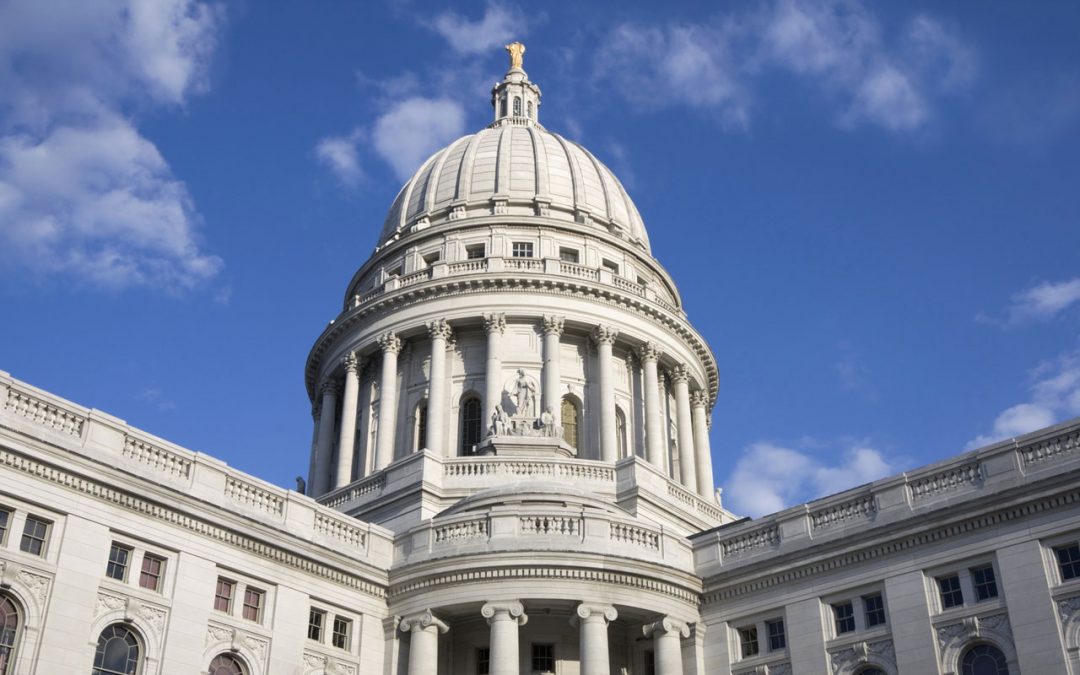
by Jim Boullion | Feb 23, 2022 | Action Alert, Advocacy, Electric Vehicles, Legislative Watchlist
On February 15th SB 573 passed the State Senate on a (mostly) partisan vote of 19-13. All Democrats voted against the bill. Sen. Steve Nass was the only GOP Senator who voted against it.
The State Assembly has placed the bill on today’s floor calendar (Wednesday, February 23rd) for a vote. If it passes the Assembly the bill goes to the Governor for his consideration.
RENEW Wisconsin is opposed to the bill in its current form (Senate Substitute Amendment 3). While this legislation clarifies that selling electricity to electric vehicles (EVs) by the minute or kilowatt does not subject EV charging station owners to utility regulation, it has several provisions that are of concern:
- Requires that all electricity sold through an electric vehicle charger must come from the local utility. This stipulation would prohibit EV chargers that get any of their electricity from a non-utility-owned rooftop or standalone solar+storage system from being available to the public if they charge a fee.
- No local governments, which includes cities, villages, towns, counties, school districts, special purpose districts, or any state agency, may own, operate, manage, lease or control an EV charging facility available to the public. Local governmental units may authorize a utility or private entity to operate a charger on their property.
For background, you can view RENEW’s testimony on this bill here.
Please contact your legislators in the Assembly and ask them to oppose this legislation unless those issues are corrected!
Thank you for your support!
Please email RENEW Wisconsin Director of Government Affairs, Jim Boullion, if you have any questions.
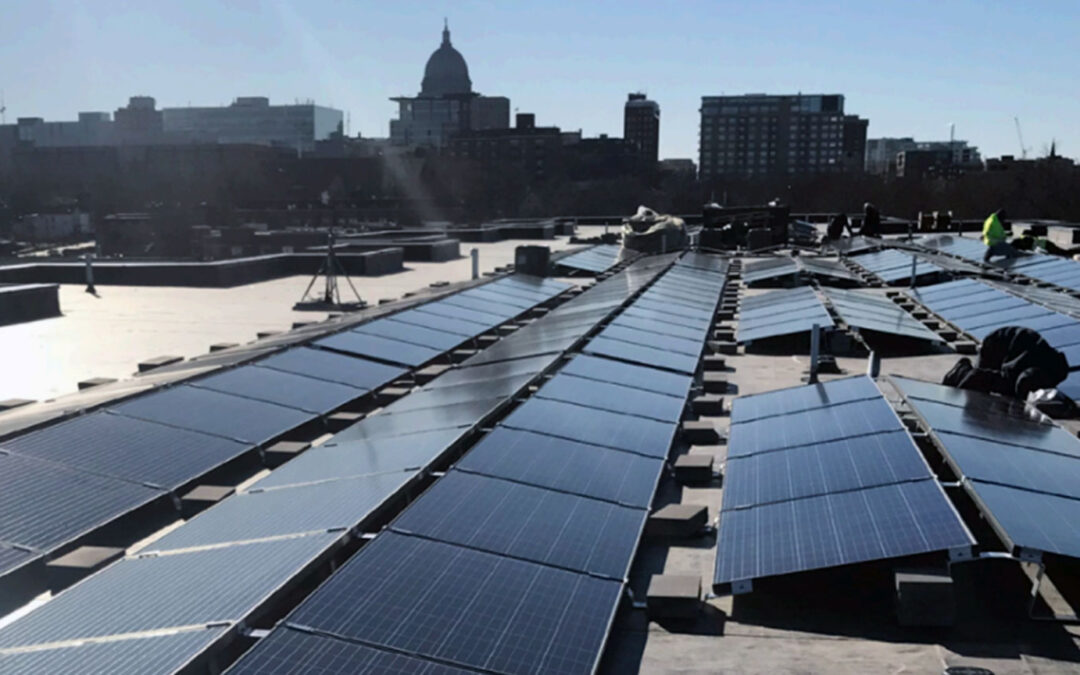
by Jim Boullion | Feb 16, 2022 | Policy, Press Release, Solar, Utilities
The Wisconsin State Senate demonstrated unanimous support for clean energy today with the passage of SB 692, which updates Wisconsin’s Property Assessed Clean Energy (PACE) program. The bill now moves to the State Assembly, where similar bipartisan support could pass the bill before the end of the session.
“We are excited to have bipartisan, unanimous support for this clean energy financing option which will help Wisconsin businesses shift to clean energy and drive economic investment. We thank Senator Cowles for introducing this legislation which demonstrates the broad appeal of common-sense clean energy solutions,” said Heather Allen, Executive Director of RENEW Wisconsin.
PACE financing creates a mechanism for commercial, industrial, health care, agricultural, nonprofit, and multifamily property owners to obtain low-cost, non-recourse financing for up to 100% of the cost of energy efficiency and renewable energy improvements. Financing options up to 30 years yield positive cash flows and increase the net operating income for commercial and industrial building owners. PACE loans are attached to the property, not the person, allowing the remaining cost of those improvements to transfer to a new owner if the property is sold.
SB 692 will improve access to PACE financing in Wisconsin by adding clarity and expanding eligibility.
Among other changes, the legislation:
- Expands the type of projects that may be financed to include energy reliability improvements, weather-related resiliency projects, electric vehicle charging infrastructure, and stormwater control measures.
- Defines the term of the repayment period, clarifying that financing may be repaid through a lien, and ensures that all mortgage holders provide written consent before the issuance of funding.
- Removes the requirement for energy and water savings to exceed project costs and would instead require that the owner obtain a third-party assessment of the anticipated energy and water cost savings from the proposed project and provide confirmation of proper installation after work is completed.
- The bill also prohibits PACE financing for residential units of less than five units. Wisconsin does not currently have a residential PACE program. In the few states that have tried implementing a residential program, problems developed when individual homebuyers did not fully understand the implications of a PACE loan.
“Regular updates to our energy laws and financing programs like PACE allow Wisconsin’s citizens to benefit from the many advancements in clean, affordable renewable energy and energy efficiency technologies,” said Jim Boullion, Director of Government Affairs.

by Jim Boullion | Feb 14, 2022 | Action Alert, Advocacy, Electric Vehicles, Legislative Watchlist
On Friday, February 11th SB 573 was recommended for passage on a 3-2 vote by the Senate Committee on Utilities, Technology, and Telecommunications. The bill was immediately put on the State Senate floor calendar for tomorrow, Tuesday, February 15th. If the bill passes the Senate, it will go to the State Assembly, where it would be available for full adoption at any time before the end of the floor session on March 10th.
This legislation clarifies that selling electricity to electric vehicles (EVs) by the minute, kilowatt, or other means does not subject EV charging station owners to utility regulation as long as the owner meets several requirements. Among those requirements in the amended bill are several provisions that are of concern:
1. Requires that all electricity sold through an electric vehicle charger must come from the local utility. This stipulation would prohibit EV chargers that get any of their electricity from a non-utility-owned rooftop or standalone solar+storage system from being available to the public if they charge a fee.
2. No local governments, which includes cities, villages, towns, counties, school districts, special purpose districts, or any state agency, may own, operate, manage, lease or control an EV charging facility available to the public. Local governmental units may authorize a utility or private entity to operate a charger on their property.
For background, you can view RENEW’s testimony on this bill here.
Please contact your legislators in both the Senate and Assembly, and ask them to oppose this legislation unless those issues are corrected!
Thank you for your support!
Please email RENEW Wisconsin Director of Government Affairs, Jim Boullion, if you have any questions.
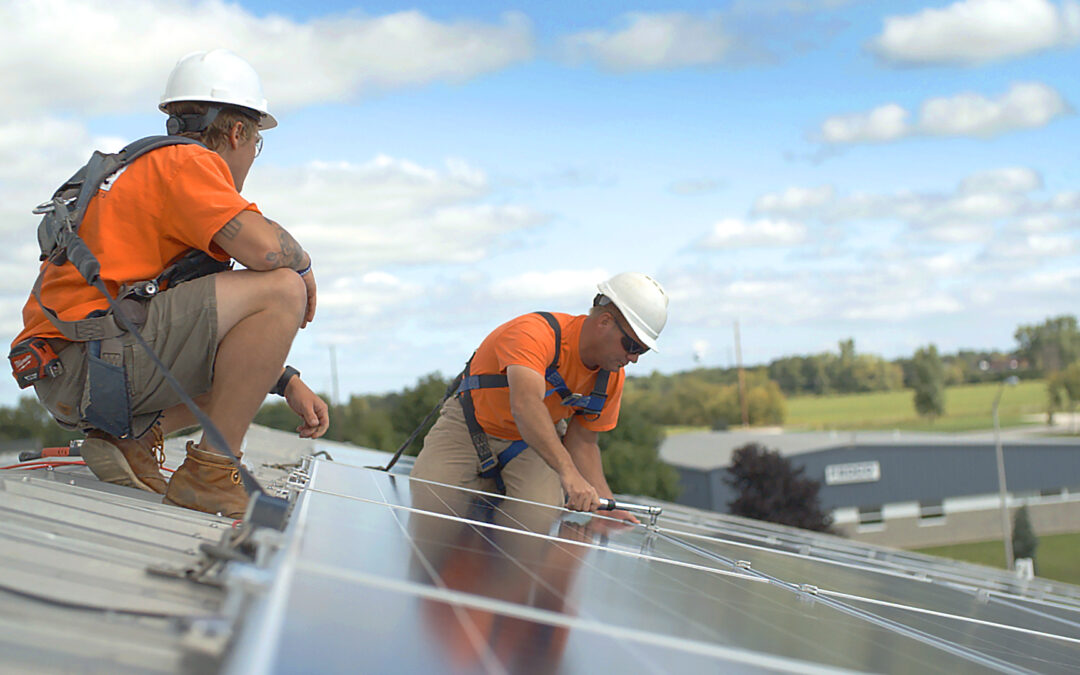
by Heather Allen | Feb 2, 2022 | Advocacy, Legislative Watchlist, Local Government, Policy
Federal clean energy and climate investments are more crucial than ever. Congress must deliver a deal that includes clean energy investments in the Build Back Better Act.
This is a make-or-break moment to shore up the electric grid and help accelerate renewable energy and energy efficiency adoption in the U.S. These investments will make the difference between leading the global clean energy economy or lagging behind the rest of the world.
According to the Solar Energy Industry Association, the Build Back Better Act would drive $234 billion into the economy over the next four years and require at least 450,000 workers to get it done – double the size of today’s solar workforce!
In the last few weeks of 2021, the Build Back Better Act (Biden’s flagship climate and clean energy proposal) hit roadblocks. Regardless of the political stalemate, the critical importance of the Act’s clean energy and climate provisions cannot be overstated. As Stewart MacKintosh wrote in The Hill, “Achieving global climate change goals depends on the U.S. starting to implement Biden’s net-zero carbon emissions plan today- not two (or god forbid) four or more years from now. We have no extra time.”
The Build Back Better (BBB) Act is the third and most ambitious part of Biden’s original Build Back Better plan, including COVID-19 economic relief, social services, welfare, and infrastructure. Significant portions of the agenda were signed into law with two bills in 2021, The American Rescue Plan Act (March 2021) and the Infrastructure and Jobs Investment Act (November 2021).
BBB is the most powerful tool the Federal Government has in play to curb U.S. emissions and reach the climate and clean energy goals established in the Paris Agreement. BBB provisions would mobilize billions of dollars to expand access to clean energy and electric vehicles, improve the efficiency of buildings, electrify heating and cooling, support American clean energy industry growth, and help American manufacturers and other businesses reduce energy use and emissions. BBB also contains funding for social infrastructure, environmental justice investments, natural climate solutions, and rental assistance.
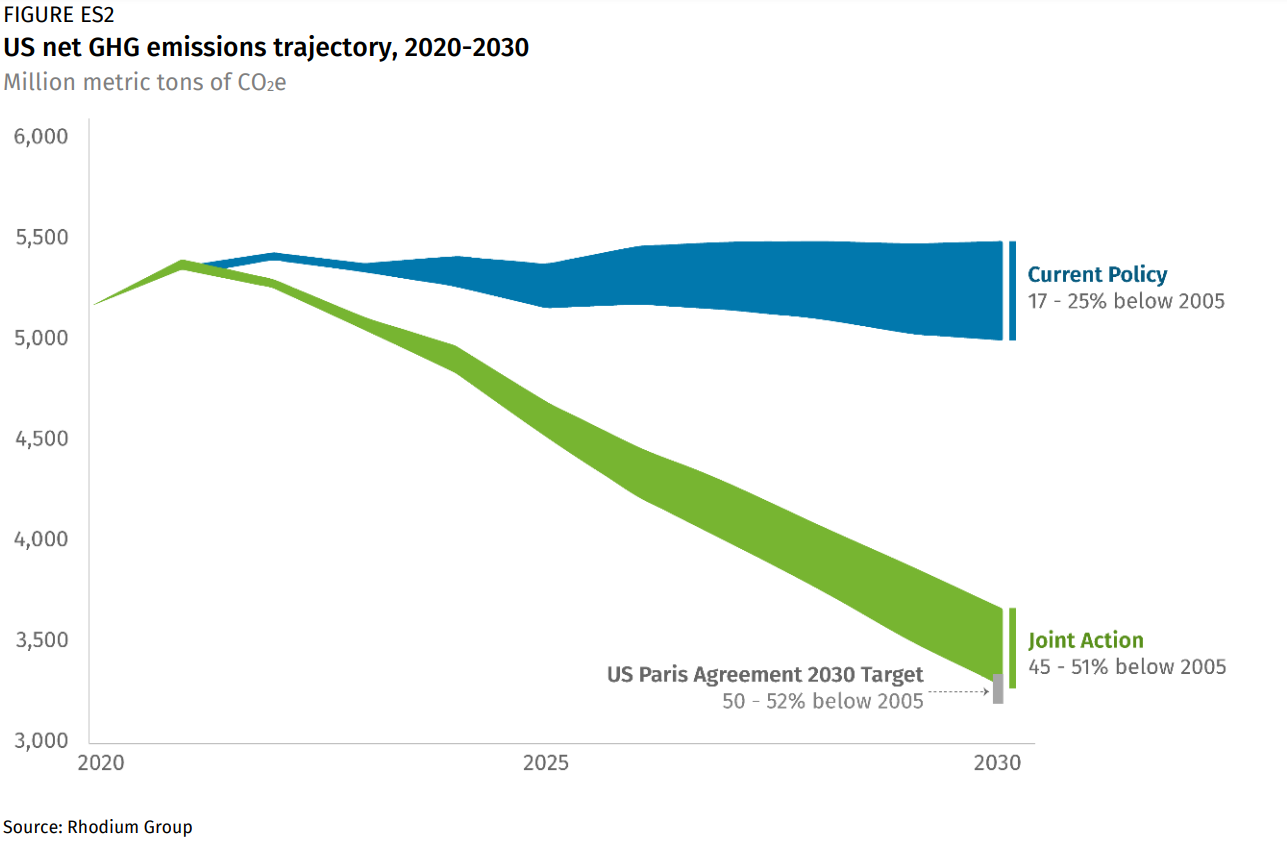 Image/Figure from https://rhg.com/research/us-climate-policy-2030/
Image/Figure from https://rhg.com/research/us-climate-policy-2030/
This figure from the Rhodium Group shows that “Joint Action” can reduce emissions by 50% below 2005 levels. Joint Action refers to the collective impact of legislation adopted in 2021, BBB climate and clean energy provisions, and state and local action. BBB is the most critical element in this suite of actions and will accelerate clean energy adoption, save money for consumers, and reduce emissions.
Businesses and Workers Support Build Back Better
Last summer, Wisconsin businesses signed a letter calling on Congress for ambitious clean energy investments. Since that time, an increasing number of companies and organizations have signaled their support for clean energy investment to drive jobs and economic activity.
West Virginia coal miners called on Joe Manchin to support Build Back Better.
Provisions in the bill would support miners dealing with Black Lung Disease, provide incentives to develop clean energy projects on closed mines, and support the right to unionize.
400 companies signed a letter calling on lawmakers to pass Build Back Better.
“The climate components of the Build Back Better package are both fiscally responsible and critically needed to ensure a stable climate for businesses and communities, help companies save money with affordable clean energy, and strengthen U.S. competitiveness by building upon the important measures in the infrastructure package that passed Congress this fall,” said Hugh Welsh, president and general counsel, DSM North America.
Wisconsin’s solar installers, in particular, recognize that Build Back Better will provide greater access to clean energy, especially for farms and low-income families.
“The extension of the business and residential tax credits for solar are critical for our industry. But adding refundability to both 48C and 25D is a game-changer for low and moderate-income households, farms, and other entities that don’t have the tax liability to realize the normal tax credits and finally enables them to go solar. It has the potential to bring the equitable distribution of the benefits of solar to millions.” Josh Stolzenburg, CEO Northwind Solar, Amherst, Wisconsin.
Contact your senator today and ask them to support climate and clean energy provisions of Build Back Better. There is no time to waste.

by Jim Boullion | Feb 1, 2022 | Action Alert, Advocacy, Electric Vehicles, Legislative Watchlist
AB 588 / SB 573 (Sen. Cowles and Rep. VanderMeer) will have a hearing in the State Senate and a committee vote in the Assembly this week at the State Capitol. This legislation attempts to clarify that selling electricity by the kilowatt-hour (instead of by the minute as is the current practice) to electric vehicles (EVs) does not subject EV charging station owners to utility regulation. However, the bill has been amended with several provisions that are of concern:
- Requires that all electricity sold through an electric vehicle charger must come from the local utility, prohibiting EV chargers that get any of their electricity from a rooftop or standalone solar+storage system from being available to the public if they charge a fee.
- No city, village, town, county, school district, or state agency may own, operate, manage or lease a publicly available charging facility. Municipalities may authorize a utility or private entity to operate a charger on their property.
The Senate Committee on Utilities, Technology, and Telecommunications has scheduled a Public Hearing on SB573 for Wednesday, February 2, 2022, at 10:30 am, 400 Southeast. The public may testify at this hearing. Keep testimony under 5 minutes and provide a written copy if possible.
Members: Julian Bradley (Chair), Roger Roth (Vice-Chair), Van Wanggaard, Brad Pfaff, Jeff Smith
Assembly Committee on Energy and Utilities has scheduled an Executive Session to vote on AB588 on Thursday, February 3, 2022, at 11:00 am, 412 East, State Capitol, Madison. There is no public testimony at this hearing (the public hearing was in October). View RENEW’s testimony on this bill here.
Members: Mike Kuglitsch (Chair); David Steffen (Vice-Chair); Travis Tranel; Loren Oldenburg; Warren Petryk; Adam Neylon; Tyler Vorpagel; Gary Tauchen; Kevin Petersen; Cody Horlacher; Beth Meyers; Lisa Subeck; Deb Andraca; Supreme Moore Omokunde; Sara Rodriguez
Please contact your legislators, especially if they are members of one of those committees, and express your concerns with this legislation.
We also encourage you to attend the hearing in the Senate Utilities Committee on February 2nd to oppose these restrictions.
Thank you for your support!
Please email RENEW Wisconsin Director of Government Affairs, Jim Boullion, if you have any questions.








